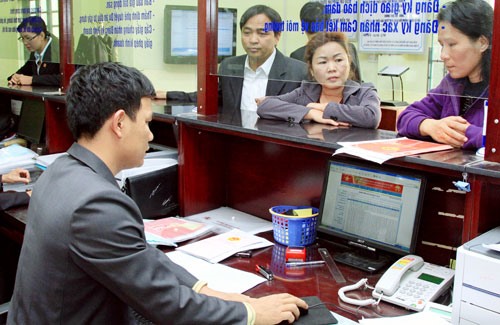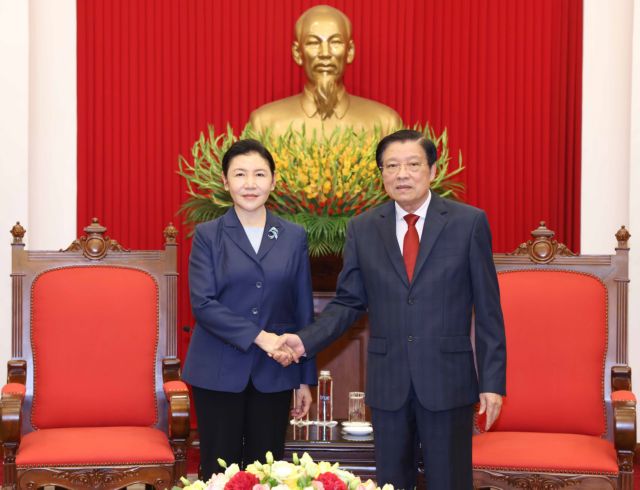 Society
Society

Deputy Prime Minister Vũ Đức Đam called on ministries to review their databases and means of information delivery to improve and offer more online public services.
 |
| Deputy Prime Minister Vũ Đức Đam called on ministries to review their databases and means of information delivery to improve and offer more online public services. — Photo hanoimoi.vn |
HÀ NỘI — Deputy Prime Minister Vũ Đức Đam called on ministries to review their databases and means of information delivery to improve and offer more online public services.
Speaking at a conference on e-Government on Tuesday, Đam said according to the United Nations’ e-government survey 2016, Việt Nam ranked 89th out of 193 countries and territories in the e-government development index (EGDI), up ten places compared to 2014.
The survey also pointed out that Việt Nam’s online public services ranked 74th, communication infrastructure 110th, and human resources 127th.
Online public services directly affect people, businesses and national competitiveness, he said, adding that achieving a high international rank could help attract investors and make the country’s voice stronger on the international stage, particularly in negotiations for international trade pacts.
In October 2015, Việt Nam’s Government issued a resolution - Resolution 36a/NQ-CP – that states during the 2015-17 period, the country is focusing on administrative reform combined with enhancing the application of information technology in State management and e-public services to reduce the time and cost of completing administrative procedures.
The resolution also states that by the end of 2016 all central State agencies and ministries are to have full e-public services, where users can access online forms and then send their completed forms and other documents to State agencies. All activities related to processing such documents are to be conducted online.
“Ministries and agencies concentrated on analysing categories and criteria in the United Nations’s e-government rating and then, taking responsibility for those that relate to their work,” Đam said.
“However, relevant ministries and agencies failed to collect or update data that the UN uses to calculate the e-government index,” he added.
For example, the Ministry of Education and Training did not have statistics about expected years of schooling of children and average years of schooling of adults over 15 years old, while the two figures are parts of human resource index.
The Ministry of Information and Communications failed to announce updated statistics about the number of Internet users, number of landline telephone subscribers per 100 people, mobile phone subscribers per 100 people or the wireless gateway rate.
The shortcomings revealed that actions were not strong enough and responsibilities must be tailored to ministries and agencies more clearly, he said.
He asked ministries to speed up the implementation of online public services as part of administrative reform – a move that last year pushed eight low-income countries into the top 65 countries with the highest e-government development index.
He also suggested two approaches to launch online public services. First, the services should go online if they are time-consuming and complicated.
Second, the services are not too complicated and can be quickly performed online.
Đam said that ministries should run pilot programmes in some localities first and expand later.
Minister of Information and Communications, Trương Minh Tuấn, said that this year, the ministry would issue criteria to assess the application of information technology in State offices which provides important data of e-Government development in Việt Nam.
The Việt Nam Association for Information Processing reported that until this month, Việt Nam had 130,000 administrative procedures but the number would be halved if they were standardised in terms of name, process, file and forms. Procedures may be the same but classified under different names or forms. — VNS









